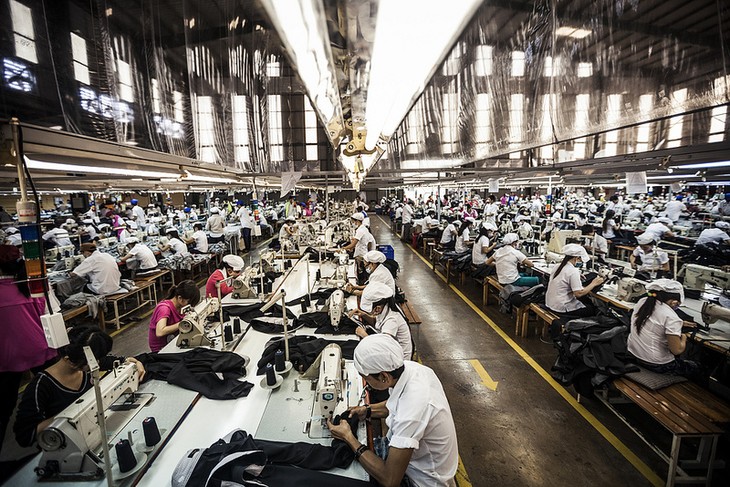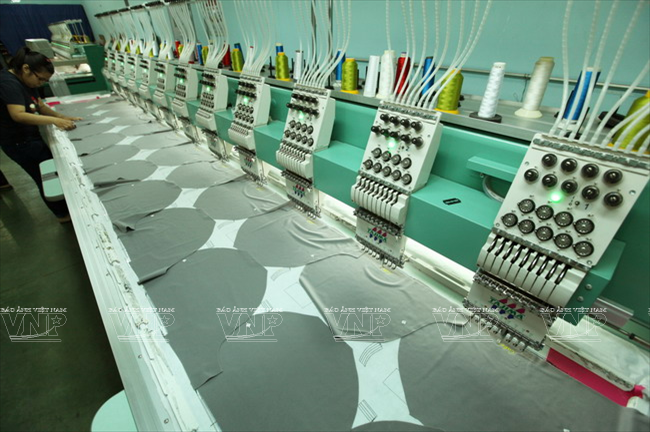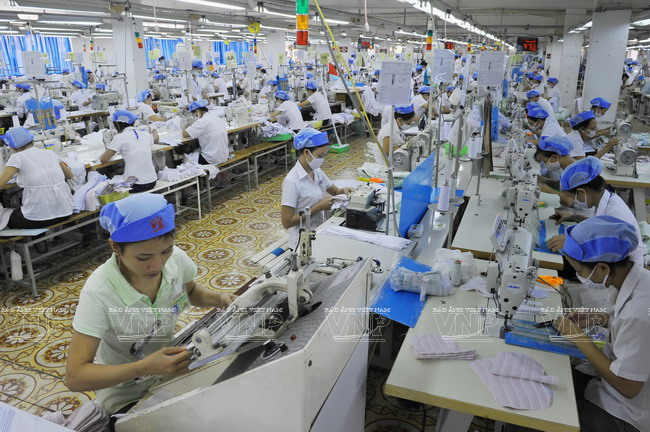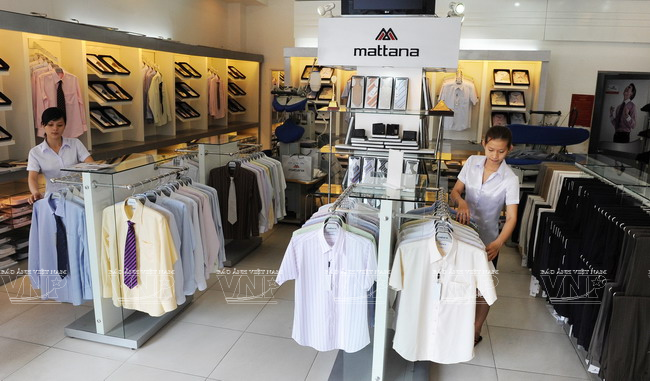(VOVworld) – Vietnam has proven that it is fully integrating internationally by a series of free trade agreements that have been signed or will be signed in the near future. Although Vietnamese enterprises face many challenges and many things need to be done to take advantage of the trade deals, this is a great opportunity for Vietnam to restructure its market and economy.
 |
Ando International, a Vietnamese garment firm in Ho Chi Minh City.
(Photo: ILO in Asia and the Pacific) |
Two of the 10 bilateral and multilateral free trade agreements Vietnam has signed are trade deals with the Republic of Korea and the Europe-Asia economic union.
The FTAs will create new opportunities for businesses to grow by reducing or removing import tariffs, and allow Vietnamese enterprises to participate in the goods supply chains of foreign partners, helping to stabilize production, improve competitiveness, and balance the import-export market so as to avoid dependence on a single market.
 |
| Vinatex focuses on projects to produce auxiliaries and materials in the service of production. (Photo: vietnam.vnanet.vn) |
Dang Phuong Dung, Secretary General of the Vietnam Garments and Textile Association, said FTAs motivate Vietnamese companies to grow and renovate their ways of thinking and their trading methods.
She underscored that “rules of origin imposed by importers are strict and set one of the biggest challenges for Vietnam because its garment and textile industry has less developed, particularly in material supply sources. Vietnamese garment and textile companies most often import the materials they need to produce items for exports. FTAs should be considered an opportunity for Vietnam to attract both domestic and foreign investment.”
Pursuant to Vietnam's commitments, many tariffs will be reduced. This means a lot of domestic agricultural items will be affected. Several other industries including the automobile, iron and steel, and garment and textile industries will meet with stiff competition from foreign rivals.
 |
| Vietnam’s textile and garment sectors have an abundance of well-trained human resources. |
Dang Hoang Hai, director of the European Market Department of the Ministry of Industry and Trade, says integration commitments are the lever for Vietnam to speed up its restructuring to boost economic growth, expand export markets, and improve competitive advantages for Vietnamese export items against regional products.
“A strong point of FTAs is to force Vietnam’s industries to combine technology investment and renovation to ensure the competitiveness of domestic products. One pressure of the international integration process is to guarantee the development of Vietnamese products while at the same time complying with regulations of the international market,” according to Hai.
 |
Many garment and textile enterprises have strategic plans to prepare for joining the TPP.
(Photo: vietnam.vnanet.vn) |
Former director of the Development Strategy Institute Luu Bich Ho says that to prepare for a global integration strategy, Vietnamese companies should actively research markets and understand the needs of the markets they will sell their products to.
Ho noted that “Vietnamese businesses have successfully penetrated many markets around the world and consolidated their footholds there. Opportunities always come with challenges, so domestic firms
should try harder to turn challenges into growth opportunities. ”